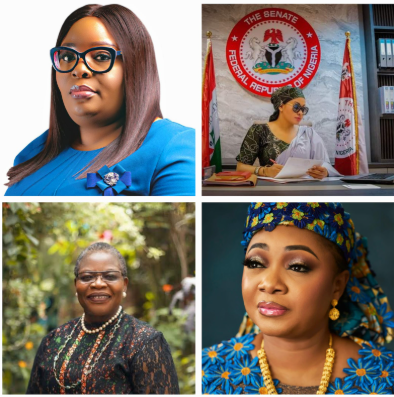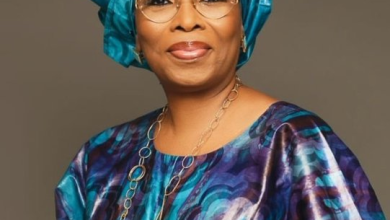
|
Getting your Trinity Audio player ready...
|
The melodrama surrounding women’s political leadership in Nigeria is at an ascending climax, igniting debate among advocates, stakeholders, and the cream of activists.
Despite the inroads women have made into politics upon Nigeria’s independence in 1960, the marginalisation of women in politics persists, and they are still significantly marginalised.
Notable research findings revealed that gender disparities still dominate the country’s political landscape, a perennial development attached to long-standing gender and traditional stereotypes, traditional practices and patriarchal societal structures that have relegated women to domestic responsibilities.
The 2019 United Nations Report observes that about 38 countries have less than 10% women in parliament. Globally, only 17% of Cabinet Ministers are women, despite a global trend indicating that women constitute over half of the world’s population (Raji, 2023).
In Nigeria, women’s representation in politics is below 7%, showing that Nigeria has not attained 30 per cent affirmative action as prescribed by the Beijing Platform of Action (Agbalajobi, 2010). Although Nigeria introduced affirmative action policies, such as the National Gender Policy, to promote women’s inclusion in political decision-making processes, the outcomes are subpar.
Two prominent events revealed the deep-seated and fundamental issues still facing women who dare to venture into the male-dominated cabal of Nigeria’s political terrain.
It is a paralysing paradox and ridicule for women to be subjected to certain ordeals in the same month they were doled out to celebrate them globally; this is regarding this year’s celebration of International Women’s Day.
There is no denying that this year’s theme aimed to accelerate action for gender equity and amplify women’s role in nation-building, including the wins no matter the measly means; however, political imbalance lingers.
Political limbo and rascality, including godfatherism, construct and meddlesome forces that pervert the will of democracy. A striking case is the public ridicule and display of shenanigans in the Lagos House of Assembly during the speaker’s nomination process.
Mojisola Meranda, the fleeting Speaker who came into the scene amid chaos and sudden impeachment of Mudashiru Obasa and had to conceal her disappointment in an open rendition of a Yoruba Song upon her resignation from office, and to fate— a move that gently settles her into a more ‘befitting’ role — the supporting position; she now currently serves as the Deputy Speaker of the Lagos House of Assembly.
Senator Natasha Akpoti-Uduaghan, unlike Deputy Speaker Meranda’s quiet and complacent demeanour, remains unswayed by the swirling scheme on her trail. She laid bare her truth unflinchingly, even though she paid the price with all senatorial privileges which were stripped.
The fire of cases like Meranda and Akpoti-uduaghan usually gets doused before escalating into the public scene until it collides with Natasha’s ironclad will—someone who has evidently not relented in paving the way for clarity and fairness to prevail.
Even some women could not stand Natasha’s level of boldness, so they labelled her stubborn. Also, undercurrent resentment mostly runs high against someone who dares to actualise what others have only mustered the courage to fantasise about.
From the aforementioned analyses, it is evident that Nigeria’s political terrain needs a systematic overhaul. Nigeria needs to work hand in glove with policymakers and begin walking the talk to fully maximise the potential and development capacity of the country’s population of women.
This article was first published on nigeriagrassrootnews.






